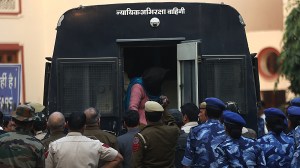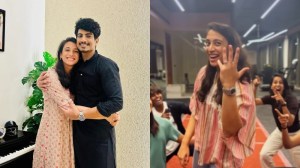In Valley of violence, two teachers stay on to script tale of hope
SRINAGAR, OCTOBER 1: The decade-long violence, death and destruction, migration of Hindus and politics of hatred might have pushed the two...

SRINAGAR, OCTOBER 1: The decade-long violence, death and destruction, migration of Hindus and politics of hatred might have pushed the two communities poles apart here, but pristine Kashmir and its composite culture is still alive in small islands of hope.
Islamia College of Science and Commerce in the heart of Srinagar is headed by a Kashmiri Hindu, Prof Bal Krishan Koul who, along with another Pandit teacher Prof Dileep Kumar Raina, has been instrumental in reviving this leading Islamic institution of the Valley. It was not an easy affair; it meant treading on the razor’s edge, for the area was the hub of militancy for years. The two professors faced threats, abductions and lived dangerously amid gunfire and granades. When friends and relatives moved out of the Valley, they preferred to stay — to revive the Islamic institution which was set ablaze by militants in 1990, to prevent the security forces from camping in the premises.
The governing body of this undergraduate college still has 30 per cent nominees from the Anjuman-e-Nusratul Islam, a religious body affiliated to former Hurriyat Conference chairman Moulvi Umar Farooq’s Awami Action Committee. Established in 1961, the college is funded by the State Government.
“Despite being an Islamic institution, we never felt as outsiders for our Hindu faith,” Koul said. “This college has a culture of its own and we love it. Kashmiriyat undoubtedly is alive here.” Though Koul, a professor in Chemistry, started his career from the college in 1964, he was posted out in other degree colleges of the Valley. However, he returned as its principal in 1999. “We conduct Seerat (regarding the Prophet’s life) and other Islamic conferences,” Koul said.
Raina, however, has a long association with the college. He has neverbeen transferred ever since he joined as lecturer in Physics in 1969. His love for his college had even endangered his life. In 1993, he was pulled down from his scooter and kidnapped by militants outside the college. “It was the most dreaded outfit of the time. Ikhwan-ul-Muslimeen. They had already kidnapped and killed the then Vice-Chancellor of Kashmir University Prof Mushir-ul-Haq and General Manager of Hindustan Machine Tools H.L. Khera,” Prof Raina said. “I felt I was dead. They had heard that former foreign secretary T.N. Kaul is my relative and wanted to force the Government to set free a few of their associates in exchange.”
The militants, however, were forced to release Raina after thousands ofstudents of the college came out on streets and closed the college for anindefinite strike. “Such was the pressure exerted by students thatthe then chief of the militant outfit, Altaf Qureshi, met me the next dayand apologised. I was immediately released,” Raina said.
His colleague and friend for past 30 years Prof M. Sayeed of Zoologydepartment joins in. “We were literally camping in the college. Contactingeveryone who could be of any help to rescue Prof Raina. Thank God, hewas released safely within 24 hours,” he said. “What you see in Islamia College is nothing unusual. It is the real tradition and ethos of Kashmir, which had no room for communal polarisation. Unfortuanately, it seems now dominated by a culture of hatred and suspicion”.
Raina was so moved by the gesture that he decided to stay back despitelot of perseverance from relatives and friends, who had already migratedfrom the state. “I don’t remember how many times I was caught in crossfirebetween militants and security forces or escaped a grenade blast whileon way to or back from the college,” he said. Raina, however, had toshift his residence for four years from Sanatnagar to the high-security Indranagar in 1990.
Another Pandit teacher of the college, Prof Bansi Lal Raina, died in harness. He too had not migrated from the Valley after the emergence of militancy and had continued teaching at Islamia College despite all odds. “When he died at Chanapora here, his last rites were conducted by students andthe staff of college,” Raina said. “Here, at Islamia College, we have developed a strong bond with each other that survived all the onslaughts of politics of communalism and hatred.”



- 01
- 02
- 03
- 04
- 05




























